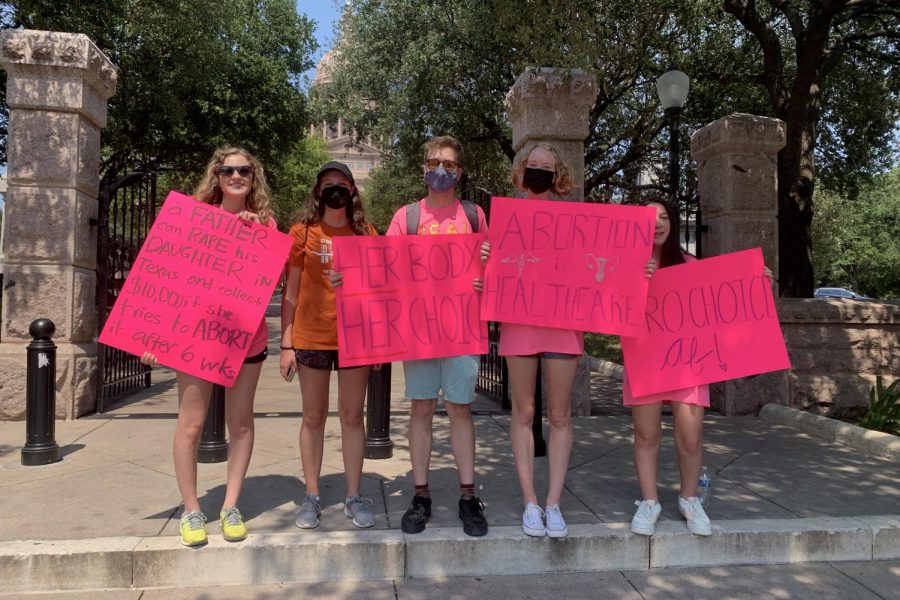“A woman’s body is not a commodity.” UT-Austin community members say new Texas abortion law threatens womens’ safety
September 15, 2021
Many UT students and faculty say Senate Bill 8, the abortion bill signed into law by Texas Governor Greg Abbott in May, will make it more difficult for women to have access to safe abortion care.
“A woman’s body is not a commodity, it’s not something that men can use in order to push a political agenda,” biochemistry junior Gauri Pargaonkar said. “Women should not be treated like baby-making vessels.”
The law took effect Sept. 1 and prohibits abortions as early as six weeks into pregnancy, offering no exceptions for pregnancies resulting from rape or incest. The law will not be enforced by the state, but will allow private citizens to sue abortion providers.
Abigail Aiken, an associate professor in the Lyndon B. Johnson School of Public affairs, said the law is unconstitutional and the bill’s language lacks medical expertise, including the use of the term “fetal heartbeat,” which is inaccurate.
“Certainly at around the six-week mark, if you were to do an ultrasound on someone who’s pregnant, you are going to see electrical cardiac activity in what’s going to eventually be the heart of the baby,” Aiken said. “At that point, calling it a heartbeat is actually designed to evoke emotions in people to really have them connect with the fetus as an already living person.”
Women who are pregnant and do not wish to carry to term after the six-week cutoff can still get to a clinic out of state or self-manage by ordering abortion-inducing pills (normally received in a clinic) online through services like Aid Access, Aiken said.
Abortion care was already largely unaccessible in Texas before SB 8, Aiken said, as many women had to attend clinics multiple times, recieve ultrasounds and testing and attend state- mandated counseling before recieveing care. Aiken said SB 8 will continue to disproportionately impact low-income Texans and people of color, who have historically faced barriers when seeking abortion care in Texas.
“Senate Bill 8 is a continuation of a trajectory that we’ve seen in Texas over the last decade,” Aiken said. “Of trying to put abortion care out of reach of those living with fewer resources, those who are the most marginalized.”
Pargaonkar, executive director of the University’s Feminist Action Project, the organization that helped lead Friday’s Capitol protest, said the law goes against one of the central tenets of feminism — that a woman’s idenity should not be reduced to her ability to have children.
“It’s important to empower women, not just mentally but materially as well,” Paragaonkar said. “If they can’t afford to have a baby, if they don’t have the time for it, if they don’t have the resources for it, they shouldn’t have to (carry it to term).”
Chemistry sophomore Nastassja Martin attended the protest at the Capitol with friends and said she was furious about not having complete autonomy over her body.
“We believe that we have the right to get abortions, and we really think that women need to be taking a stand,” Martin said. “A lot of people that I’ve talked to have been scared to come (to the Capitol) and do this, but we think this is a constitutional right.”



